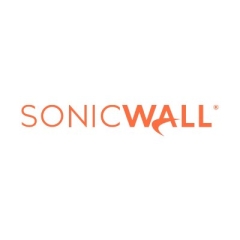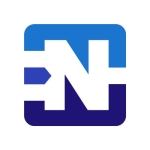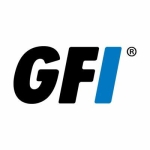What is our primary use case?
Primary use is Office 365, all our users have cloud-based email. The rest is business emails, business procurement, etc. And if users are on after hours and they want to see more, we allow it, but still, blocking is difficult on the SonicWall. It's not easy. We have about 300 users who go through the internet.
What is most valuable?
At the moment, none. It just doesn't do its task. Users, no matter how you configure it - and it's configured quite carefully in the sense of censoring - seem to be able to punch to the file. It just doesn't do its job.
It seems to have all the features, it's just not performing.
It has good reporting, the reporting is marvelous, but reporting is always after the fact and you want to be proactive if you're a firewall. You don't want to be saying “Ah! We had a bot running on the network,” while SonicWall itself didn't give that indication in an active way.
What needs improvement?
The problem primarily with SonicWall is it's a Unix box. And it's all software, all the activities, blocking, censoring, everything has to happen in the software. If you start hitting the box with a lot of sessions it slows down and that's not what I expect from a firewall.
I have worked with this box for six months, and it's a daily task to manage this thing. You don't have to always have time to do this.
The room for improvement is to step away from the Unix platform. It needs to be a specialized system that manages firewall activity. You don't want to rely on two systems, one being Unix and one being the firewall. Unix is a powerful system, I have no doubts about it. I've set up Unix systems my whole life and they're very powerful. However, when it comes to dedicated tasks it's not suitable. That's Unix. Unix is general. It does everything. And by doing everything, it's not always as powerful as a dedicated system like a hardware solution, like Fortigate.
For how long have I used the solution?
Less than one year.
What do I think about the stability of the solution?
It's fairly stable. In the last six months, I've had to restart the box about five or six times because it just didn't do what it needed to do. And after the restart it started working again. So it's not as reliable, in my view.
It might be working in other environments, but in my view - we have a satellite connection of only 8 megabits - it's very hard to control bandwidth on the SonicWall to allow certain types of traffic to have priority. You can't really dedicate certain bandwidth for, let's say, an Office 365 solution. It's all very global. And global makes it hard to manage on a slow link, and 8 megabits is a slow link.
What do I think about the scalability of the solution?
I don't know about scalability because I have only worked with this box. There are probably faster boxes on the market. This box should be sufficient for 300 employees and my impression is that performance is suffering if too many people are trying to get through it.
Which solution did I use previously and why did I switch?
The main reason this was bought was it was cheap. We all know that Fortigate is far more expensive. But, then again, it's more like the Rolls-Royce of firewalls. And what you can do with it in hardware has no comparison with any of the software solutions on the market. Yes, everything performs, every firewall-type solution, whatever you want to use, does its job. But you want to have a management-free solution. If you look at Fortigate, no matter how you look at it, you know it works. With Unix boxes, you never know. It's a Unix system and, for whatever reason, it can stop working and you have to reboot the machine, which is not the most beneficial solution.
I've used Fortigates. Fortigates have no problems if you start adding a thousand users, depending on what kind of service provider you have. A big difference is that it's global censoring on the SonicWall. On the Fortigate you can censor per rule, and that's a big difference if you are in a multi-user environment where you have different types of actions.
At my current company, this was set up at the beginning, when the company started. They have never had a different solution. They have another location with Zyxel firewalls, which will also be replaced with Fortigates. They all perform. That's probably the best thing I can say about them. What we're going to implement now is a far broader solution with authentication and everything else. At this stage, that is not implemented on the SonicWall. My fear is that if we implemented that on the SonicWall, we would have more problems. It's really not that flexible.
My most important criteria when selecting a vendor are manageability and the features, and by features I mean complete management of the firewall.
How was the initial setup?
The setup is fairly simple. That's why I'm surprised that this box is struggling. That's not what I would expect from this type of solution.
What other advice do I have?
Do your homework. Go to your website, compare firewalls, not only SonicWall, not only Fortigate. Compare them for the task that it needs to run for your company. That's the bottom line. There are small firewalls which will suffice for certain companies. You might need bigger ones, you might need more features. So really, you have to do your homework.
I work in an African country, knowledge is something they are still gaining, and SonicWall is too difficult for most people to manage, versus a Fortigate where it's really a step-through and you know what you're doing, you can see what you're doing. You can't really see that on a SonicWall.
It's very hard to manage this box. You really need a lot of skills to operate the SonicWall. There is training and the like, but it's just hard to manage. Even if you have the knowledge, there are too many options. The menus are not very clear, where you should find the information.
Disclosure: My company does not have a business relationship with this vendor other than being a customer.















Hello Leen, great explanation. Just for curiosity, how many seesions your NSA 2650 manage?, How many ISP do you have and what speed?
BR